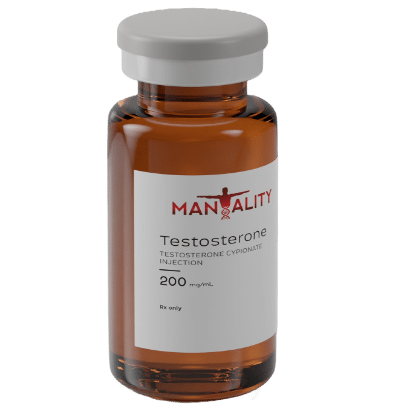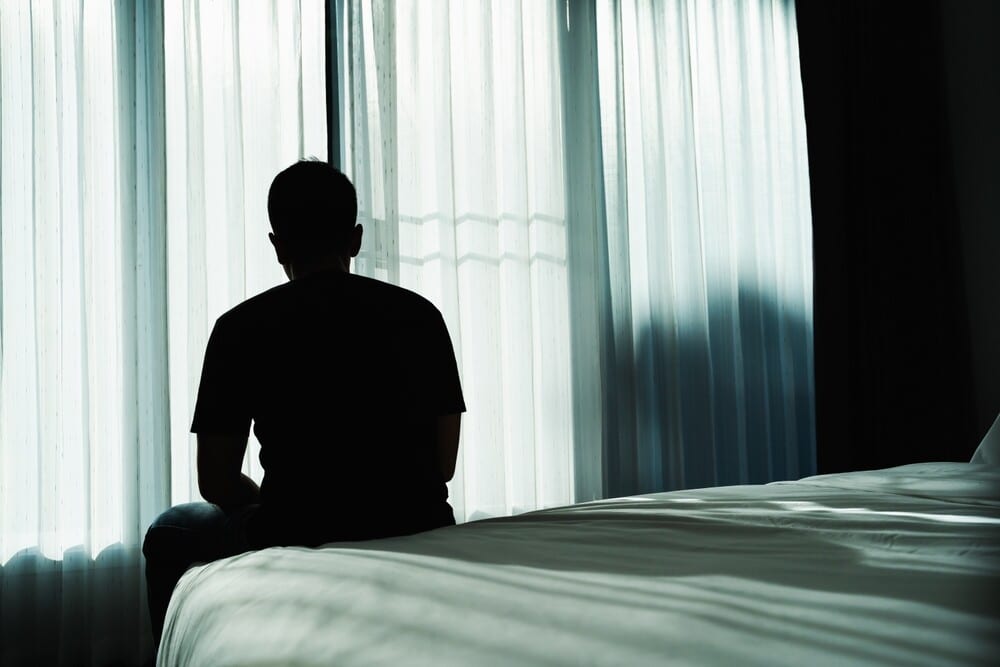8 Important Signs You Have A Male Hormone Imbalance
Feeling tired, anxious or have a diminished sex drive? You might have a male hormone imbalance. Read on for eight important symptoms to pay attention to.
Aging is a process that we all go through, men and women alike. And, when we hear about hormone imbalances, we tend to think about women only. But, the truth is that men endure hormone imbalances, too.
It’s called andropause and it happens to men gradually around age 40. It’s also a slower process than menopause, that hormonal change which women experience around that same age. And, it causes symptoms that may be chalked up to aging if not properly diagnosed.
If you’re a man and you’ve experienced gradual changes in your body that seem to be unexplainable, you might have a male hormone imbalance. And, if so, you’ve come to the right place.
In this article, we’re discussing eight symptoms to watch out for relating a male hormone imbalance. Keep reading to learn more.
Breast Enlargement
Testosterone, the male sex hormone, is what gives men their masculine features and appearance. But if you have a male hormone imbalance, your testosterone levels are decreased. Besides that, estrogen, the female sex hormone increases which can cause breast enlargement.
You might not notice it at first because it happens slowly. Some men might think they’re simply gaining weight and try to take preventative measures, like working out. But, all the exercise in the world won’t decrease your chest size if you’re suffering from a hormone imbalance.
Hair Loss
When you’re suffering from a male hormone imbalance, your testosterone doesn’t function properly. If you’re experiencing thinning or weak hair or hair loss, it could be due to a particular enzyme called dihydrotestosterone, also known a DHT. This enzyme is extremely potent and caused by low levels of testosterone.
You might also notice that your hair growth is stunted, which can lead to baldness. If you don’t think genetics is at play with your hair loss, it could be a male hormone imbalance wreaking havoc on your body.
Depression
Depression and anxiety can stem from dealing with other issues related to a male hormone imbalance. Or, it could be due to low testosterone.
If you’re noticing mood swings, a lack of motivation or unexplained sadness, it might be time to have your testosterone levels checked. It could also be an underactive thyroid causing your issues which can be easily treated with medication.
Don’t let the blues get you down permanently. Talk to your doctor as soon as you notice symptoms of depression. Depression can be a deadly disorder when not treated properly.
Weight Gain
If you’re stressed out about symptoms that you’re experiencing related to a male hormone imbalance, you could be producing more cortisol. Cortisol is a stress hormone that accumulates fat cells which can cause weight gain to occur quickly.
If you’re noticing a loss of muscle mass, or gaining weight, it could also be due to a low level of testosterone. Testosterone is responsible for your muscle mass and without it fat cells have an opportunity to take over.
Erectile Dysfunction
When your testosterone levels aren’t functioning properly, it can cause other important hormones in your body to react negatively, like the thyroid hormone. Abnormal levels of these hormones combined can cause erectile dysfunction.
Prolactin is another hormone that can be affected which is produced by the pituitary gland. This hormone makes breast milk in women but can cause problems for men when testosterone levels fall, causing erectile dysfunction as well.
It’s important to speak to a doctor as soon as you notice symptoms associated with ED. You could need medication to get your hormone levels back on track.
Low Libido
Besides dealing with ED, a low libido all together could also be a sign of a male hormone imbalance. Normally, testosterone works in conjunction with the luteinizing hormone to maintain a healthy reproductive system. But, when testosterone levels fall, a low sex drive results.
Sperm production can also be affected and may lead to infertility if not treated. Especially if you’re under high levels of chronic stress, you should get checked out to ensure that your cortisol hormones aren’t causing problems, too.
Fatigue
That cortisol hormone we keep talking about is important for regulating your sleep patterns. If it’s high or low, you could be experiencing tiredness or weakness even after a full night’s rest. And, if your testosterone is also low, you may feel groggy all the time.
It’s important to pay close attention to how much rest you’re getting and if you notice that you’re always tired, it can’t hurt to get your testosterone levels checked.
Insomnia
On the other hand, if you’re not sleeping well, it could also be a sign that your testosterone levels are either high or low. Again, factoring in how cortisol works in your body, testosterone levels that are out of control can cause insomnia.
Remember that cortisol is the stress hormone that works together with testosterone to keep you functioning at optimal levels. When you’re stressed out or not sleeping well, these hormones combined will not work properly.
Are You Suffering From a Male Hormone Imbalance?
If you’ve suffered from any of these symptoms in the past year or more, you might have a male hormone imbalance that needs to be treated. Don’t let these symptoms rule your life. You can do something about it.
It could be as simple as increasing your testosterone levels to bring you back to the man you once were. Of course, you should always discuss your symptoms with a licensed professional physician before seeking treatment. This will ensure that you’re taking the proper measures necessary to improve and sustain your health and well-being.
There is a way to sleep better, increase your focus and concentration, and shake your fatigue. When you’re ready to take action, or if you have questions, feel free to contact us. Testosterone Replacement Therapy for men is our specialty.











